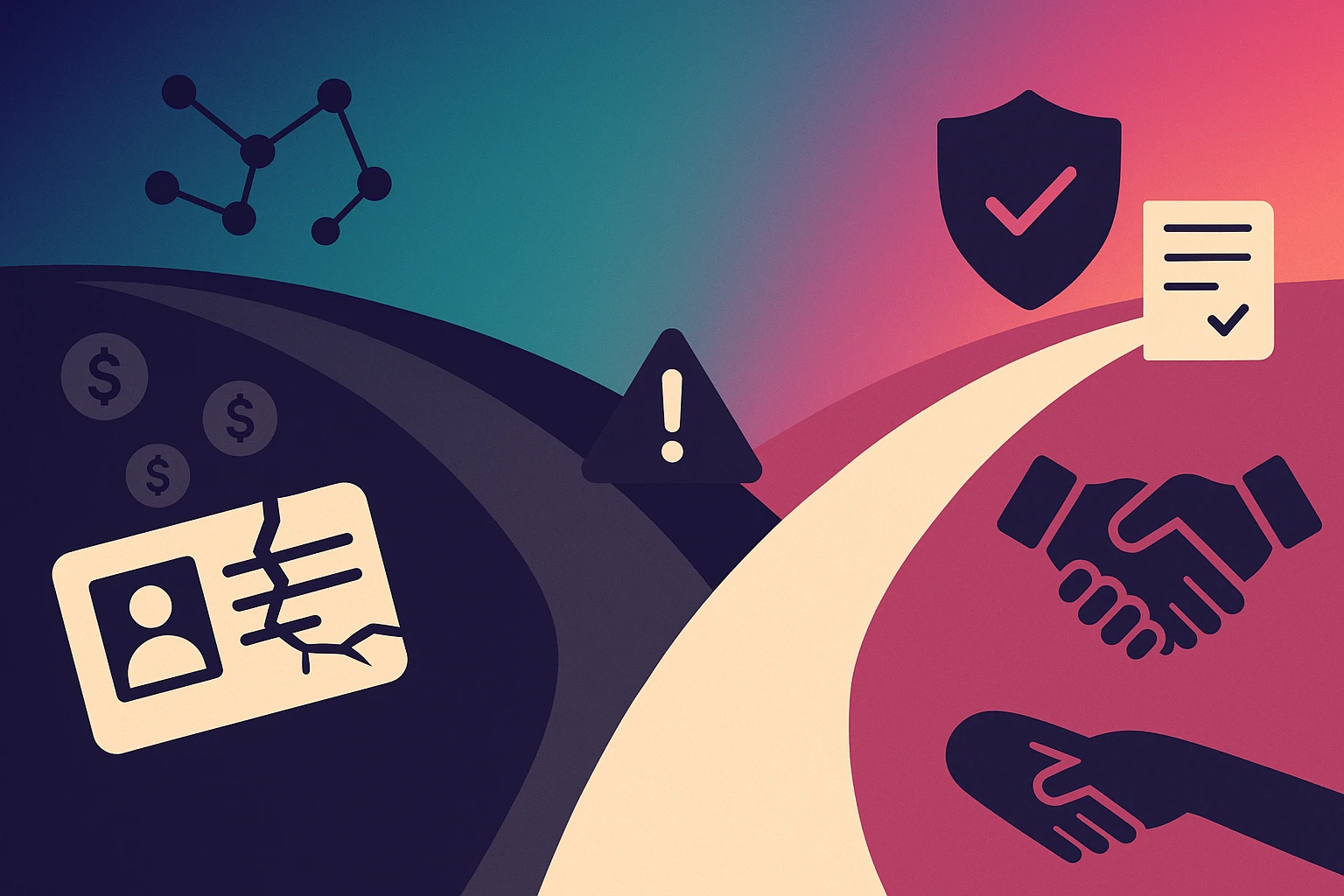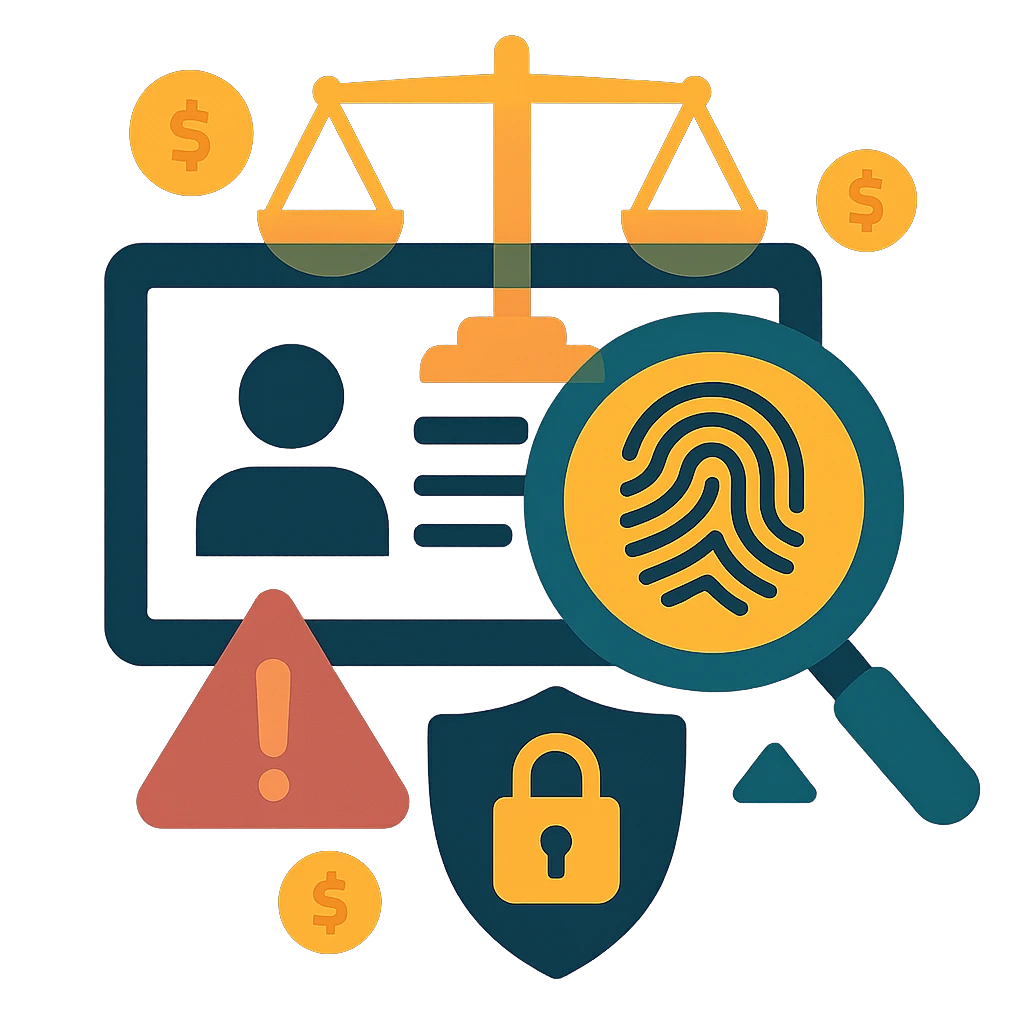A firsthand account and practical analysis of why creators risk fake IDs, the legal and platform consequences, and lawful growth strategies.

Personal anecdote
Contents
- 1 Personal anecdote
- 2 Why creators use fake IDs (motivations)
- 3 Legal risks
- 4 Platform policies and verification systems
- 5 Ethical and reputational fallout
- 6 Safer, legal alternatives and compliance options
- 7 Practical growth strategies without falsified identity
- 8 When and how to seek professional help
- 9 FAQ
- 10 Key takeaways
I started on OnlyFans when my day job hours cut and rent deadlines stacked. At first I tried to stay fully compliant, but after repeated verification rejections and a couple of payment delays, I felt cornered and ashamed. In a moment of desperation I used a false ID to speed sign-up and monetize quickly. The immediate result was a spike in subscribers and income, but it came with constant anxiety: payment holds, fear of exposure, and a gnawing awareness that the foundation of the account was illegal.
Within months I switched course. I voluntarily paused the account, contacted OnlyFans support, and rebuilt using my real identity and proper tax documentation. Growth was slower at first, but stable: payouts cleared reliably, I attracted collaborators, and the reputational risks fell away. Looking back, the short-term gains were not worth persistent legal and ethical exposure.
Why creators use fake IDs (motivations)
Financial pressure and immediate need
Creators often cite urgent financial needs—rent, bills, debt—as the immediate motive. Subscription platforms can produce fast income, and some believe a fake ID is a shortcut when legitimate verification looks slow or uncertain.
Platform barriers and friction
Account verification rejections, delays in payment provider onboarding, and confusion about documentation can push people toward illicit shortcuts. For those who have experienced repeated verification failures, the dark web or informal vendors may appear to promise quick fixes.
Privacy concerns and stigma
Some creators worry about exposing their legal name, employer, or family. That fear can make falsified identities seem attractive, especially for people with high re-identification risk or who live where sex work is stigmatized or criminalized.

Legal risks
Using a false identity to create accounts or to receive payments exposes creators to both criminal and civil risk. The specifics vary by jurisdiction, but several hazards are common.
Criminal exposure
Possessing, using, or producing false identification can be a crime. Charges may include identity fraud, forgery, or use of false documents. Penalties range from fines to imprisonment depending on local statutes and aggravating factors.
Civil exposure and financial liability
Civil consequences include fraud claims, chargebacks, and seizure of earnings if platforms or banks determine accounts were fraudulent. Payment processors and banks routinely investigate suspicious account activity and can freeze or reclaim funds.
Jurisdictional variation and enforcement
Enforcement varies widely. Some countries aggressively pursue identity fraud tied to financial transactions; others prioritize large-scale organized crime. Even where criminal enforcement is less active, civil and administrative penalties can be severe.
Platform policies and verification systems
OnlyFans verification basics
OnlyFans requires identity verification and tax information for creators receiving payouts. Public statements emphasize compliance with age verification and anti-fraud measures. Account verification failures can block monetization or lead to account suspension. Refer to OnlyFans’ official help and terms pages for current rules and processes.
Enforcement actions and account consequences
Platforms can suspend, ban, withhold payments, and close accounts when verification issues or fraud are detected. They may share information with payment processors and law enforcement when suspicious activity crosses legal thresholds.
Third-party payment and processor policies
Payment processors and acquiring banks impose KYC/AML requirements. Even if a platform is tolerant, processors can freeze funds or require additional documentation. Compliance obligations drive many of the verification steps creators find burdensome.
For official platform guidance, consult OnlyFans Help or Terms: OnlyFans Help and OnlyFans Terms.
Ethical and reputational fallout
Trust and brand damage
Trust is central to a creator’s business. Discovery of falsified identity can destroy partnerships, lead to public exposure, and sever audience relationships. Rebuilding public trust is difficult and slow.
Downstream consequences and collaboration risks
Collaborators, affiliates, and payment partners may distance themselves from creators involved in fraud. This can remove legitimate growth channels and make future verification for other services harder.
Safer, legal alternatives and compliance options
Genuine verification and documentation
Use your real, government-issued ID and accurate tax records to complete platform verification. If documents are rejected, contact platform support and follow their remediation steps; ask for specific reasons and acceptable alternatives.
Partnerships and management structures
Consider legitimate business arrangements: a manager or agency can handle payments and compliance under proper contracts and tax reporting. Forming a legal entity (LLC, corporation) can provide separation while remaining compliant—consult a licensed attorney and accountant.
Diversifying income and adult-friendly payment options
Diversify revenue streams to reduce pressure to shortcut verification: offer premium content, PPV, tips, merchandise, or external storefronts that accept lawful payment methods. Seek adult-friendly payment providers that operate within regulations and require proper compliance.
Practical growth strategies without falsified identity
Niche content and consistency
Identify a clear niche and produce consistent, quality content. Audiences respond to value and predictability more than to shock or shortcuts.
SEO, socials, and cross-promotion
Use search optimization, social platforms, and adult-friendly forums (within rules) to funnel followers to your official account. Linktr.ee-style link pages and well-crafted bios improve conversion without legal risk.
Collaborations and paid advertising
Collaborate with creators in compliance-friendly ways to access new audiences. Strategic paid advertising (where allowed) can scale growth faster than organic reach alone—ensure ad content and targeting comply with platform policies and local laws.
Monetization and lawful payment handling
Use only legitimate payout options, maintain accurate tax records, and follow payment processor terms. Offer multiple monetization tactics—subscriptions, PPV, tips, bundles—to stabilize cash flow while remaining compliant.
When and how to seek professional help
Consulting a lawyer
Talk to a licensed attorney if you face account suspension, alleged fraud, or potential criminal exposure. Seek counsel experienced in internet law, payments, and local criminal statutes. If immediate legal jeopardy exists, contact counsel before responding publicly.
Financial and tax advisors
Engage an accountant or tax professional experienced with creator income to set up compliant bookkeeping, correct past reporting, and advise on entity formation to protect personal assets.
Mental health and peer support
If pressure or coercion led to risky behavior, speak to a counselor or support group. Financial stress and stigma can drive choices that have long-term consequences; mental-health support can provide safe coping strategies.
Documentation to collect for consultations
When preparing for professional consultations, gather non-sensitive documentation: account notices, correspondence with the platform, bank/payout statements (redact full account numbers), and any contractual messages. Do not share forged documents with counsel unless explicitly asked for legal review.
FAQ
Is using a fake ID to join OnlyFans illegal in my country?
It may be. Laws on identity fraud, forgery, and related offenses differ by country; many jurisdictions criminalize using false identification in financial transactions. Consult local statutes or a licensed attorney for country-specific advice. See general government resources such as USA.gov or Gov.UK.
What penalties could I face if caught using a fake ID on a subscription platform?
Penalties range from account suspension and forfeiture of funds to civil fraud claims, fines, and criminal prosecution. Payment processors may initiate chargebacks or reclaim funds. Severity depends on jurisdiction and facts of the case.
Can OnlyFans permanently ban or withhold earnings from accounts linked to false IDs?
Yes. Platforms can suspend or terminate accounts and may withhold payouts while investigating. They may also require refunds or reverse transactions if fraud is detected. Refer to OnlyFans’ official terms for their policies: OnlyFans Terms.
What legal, age-compliant verification options exist for creators?
Use government-issued ID, official name and tax documents, and platform-provided verification workflows. If standard documents are problematic, contact platform support for acceptable alternatives rather than using falsified documents.
How can I grow my OnlyFans audience without risking legal trouble?
Grow legally by producing consistent niche content, cross-promoting on compliant platforms, collaborating with other creators, using lawful marketing, and diversifying monetization. Prioritize proper verification and compliant payment handling to avoid disruptive freezes.
When should I consult a lawyer about account suspension or fraud allegations?
Consult a lawyer as soon as you receive a formal allegation, threat of legal action, account seizure, or notice of criminal investigation. Early legal advice helps protect rights and can guide communications with platforms and banks.
FAQ and resources: For platform-specific guidance see OnlyFans Help (onlyfans.com/help) and Terms (onlyfans.com/terms). For legal overviews, consult government portals like USA.gov or Gov.UK. For legal assistance, consider the American Bar Association and local legal aid organizations such as the Legal Services Corporation. For payment and compliance standards, see the PCI Security Standards Council.
Key takeaways
- Using a fake ID can deliver short-term gains but carries substantial criminal, civil, and reputational risk.
- Platforms and payment processors enforce verification; compliance and accurate documentation protect earnings and professional relationships.
- Legal, ethical alternatives—proper verification, business structures, diversification, and professional advice—support sustainable growth.
- If pressured into illicit options or facing allegations, seek licensed legal counsel and mental-health support promptly.